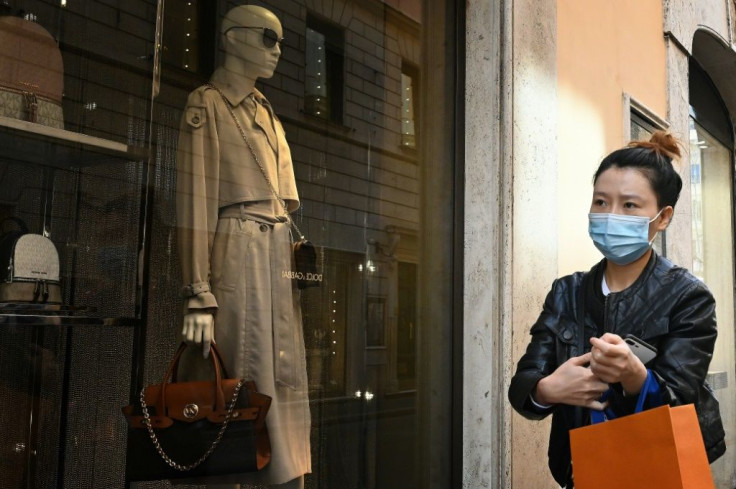US Economy On Verge Of Recession? Fate Could Depend On Government Response To Coronavirus, Experts Say

KEY POINTS
- Stocks dropped closer to bear market territory Monday as investors reeled from the increase in coronavirus cases and plunging oil prices
- Experts predicted businesses to issue profit warnings in coming weeks to be followed by layoffs, business bankruptcies and a pullback in consumer spending
- Consumer confidence won't rebound until the markets stabilize
The chief economic adviser at Pacific Investment Management Co. is warning the U.S. and Europe likely will face a technical recession in the first half with the worst “still to come” in coming months.
U.S. Federal Reserve Chairman Jerome Powell said last week, as he announced a half-point drop in the federal funds rate, that U.S. economic fundamentals are still strong, making a recession a remote possibility. But his words failed to reassure investors and by Monday traders were flirting with bear market territory.
“The worst for the economy is still to come over the next several months,” Joachim Fels wrote in a research note, citing manufacturing in China and weaker demand for travel-related services.
Anthony Denier, stock market expert and CEO of Webull, said in an email to IBTimes the Fed rate cut is a clear signal that central bankers realize global gross domestic product will shrink this year. Coupling the coronavirus outbreak with the plunge in oil prices, labor supply disruptions, school closings and business shutdowns are likely to follow.
“Policy makers are pushing for more rate cuts, but rates are already very low. Flooding the market with cheap money won't necessarily make businesses invest or borrow more. And putting money into consumers' hands won't spark spending as in a garden-variety downturn,” Denier said.
“This drop in spending isn't people not having the money. It's due to a lack of consumer confidence and lack of business investment … . Spending won't get back to previous levels until the outbreak is under control.”
Robert Johnson, professor of finance at Heider College of Business at Creighton University, told IBTimes until the stock market regains its footing, consumer confidence will remain shaken.
“The wealth effect is a powerful economic factor, particularly because consumer spending currently comprises 70% of U.S. GDP,” Johnson said, adding, “Consumers feel more financially secure when their homes or investment portfolios rise in value.”
The Dow Jones Industrial Average plunged more than 2,013 points Monday for a nearly 7.8% loss on the day. The S&P 500 was off 7.6%.
Johnson said the market wants to see a coordinated government response to the medical aspect of the crisis and actions to mitigate the impact on businesses such as interest-free loans to small- and midsize businesses plus expanded unemployment benefits for displaced workers.
“More monetary policy isn't the answer and arguably central banks are running out of rope when it comes to rate cutting as a way of softening the blow of exogenous shocks to the financial system,” Mark Pacitti, founder and managing director at Woozle Research, told IBTimes. “What is required is fast, deliberate, and unified political and fiscal stimulus but there's little chance that this will materialize in time to stem large declines in financial assets and markets.”
Greg McBride, senior vice president and chief financial analyst at Bankrate, said the economy could find itself in a “negative feedback loop” that could trigger widespread layoffs, business bankruptcies and a reduction in consumer spending. He said there’s no overnight fix, but “providing low cost credit so businesses can continue to operate in the short-term and avoid the widespread layoffs that would induce a deeper economic contraction should be considered."
"The coronavirus is the biggest hit against the economy since Lehman Brothers crashed and it will have a major impact on the U.S economy,” said Victor Carlstrom, chairman of Vinacossa Enterprises. Look for profit warnings in coming weeks to be followed by job losses in the second quarter and falling consumer activity.
“If you still want to be on the markets, I would seek exposure to muni bonds and real estate stocks. And for the people on the stock market, my best advice is: Dance near the exit."
© Copyright IBTimes 2024. All rights reserved.






















